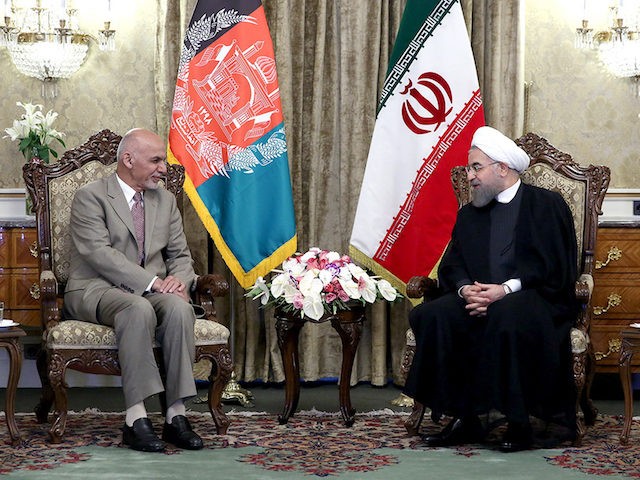Afghan cash made available in large part by billions in American taxpayer funds served as a “source of hard currency” for Afghanistan’s neighbor Iran, helping the Islamic Republic weather the storm during U.S.-backed economic sanctions, according to an American watchdog agency.
Iran is Afghanistan’s third largest trade partner after Pakistan and India, respectively.
The U.S. Inspector General for Afghanistan Reconstruction (SIGAR) describes Tehran’s trade practices in Afghanistan as “predatory or unfair” in a report released Thursday, noting that they have “hurt Afghanistan’s already struggling regional competitiveness and dampened exports.”
“Rather than becoming destinations for Afghan exports, Iran and Pakistan saw Afghanistan as a market for their own production,” SIGAR reports, later recommending, “The U.S. government should examine the veracity of these claims and, as appropriate, support the Afghan government in pursuing diplomacy, policies, and programs to mitigate them.”
Despite the unfair practices claims, the economic ties between U.S.-designated state sponsor of terror Iran and American-taxpayer-funded Afghanistan have grown stronger in the wake of the nuclear agreement reached by the Islamic Republic and U.S.-led world powers in July 2015, SIGAR acknowledges in the report.
“In the second half of 2017, Afghanistan’s trade with Pakistan was reported to have fallen substantially, while trade with Iran and India grew,” SIGAR notes, adding:
Iran has extensive commercial interests in Afghanistan, especially in the western province of Herat, where Iran has historically provided electricity. Afghanistan is an important export market for Iranian consumer goods, which are especially attractive to those Afghans who acquired Iranian tastes during years spent there after the onset of conflict in 1979. In 2016, Afghanistan reported $1.27 billion in imports from Iran, the highest in the region.
In return, cash from Afghanistan was a source of hard currency for Iran during the U.S.- backed economic sanctions. Cash remittances from the estimated 2.5 million Afghans currently living and working in Iran have been an important means of support for their households in Afghanistan. The opening of the Iranian port of Chabahar in December 2017 provides Afghanistan with an alternative to the Pakistani port of Karachi.
Since the Afghan war started in October 2001, the United States has devoted about $122 billion to nation-building efforts alone in Afghanistan, including failed initiatives to improve the country’s ailing economy.
“While over 60 nations helped to fund Afghanistan’s reconstruction, U.S. aid dwarfed all other individual country funding. Since [fiscal year] 2002, the U.S. Congress has appropriated $122.09 billion in reconstruction assistance to Afghanistan,” SIGAR notes.
Nevertheless, the United States is in 11th place on the list of Afghanistan’s top trade partners, surpassed by India, Iran, China, Russia, Turkey, the United Arab Emirates (UAE), the European Unions, and other countries.
Although U.S. law encourages the American government agencies in Afghanistan to purchase goods and services locally to boost the economy rather than import them from Iran and other countries, that has not always been the case.
SIGAR recently highlighted allegations that the Pentagon has been purchasing fuel for the Afghan security forces from Iran, in violation of ongoing U.S. sanctions.
The watchdog agency concedes:
It is not possible to determine the percentage of total U.S. government funding that went to private sector development due to the complexity of the agencies’ funding mechanisms and the overlap of these and other U.S. efforts in a variety of cross-cutting programs.
However, SIGAR points out that the U.S. government has spent at least an estimated $4.5 billion on private sector development alone since 2001.
“Despite the Bush administration’s wariness of nation-building, Afghanistan provided an example of using aid to attempt to create security, an approach that continued under President Obama,” notes the watchdog.
“U.S. financial aid practices, at times, encouraged corruption, complicated the challenges of coordination within and between U.S. agencies, and kept non-viable Afghan enterprises afloat,” it adds.

COMMENTS
Please let us know if you're having issues with commenting.